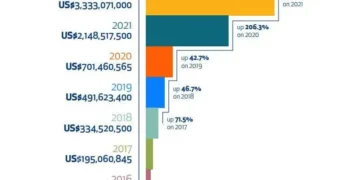Abuja, Nigeria — In a new policy shift under the Harmonized Tax Act 2025, the federal government has announced that from January 1, 2026, Nigerians will pay an additional 5% tax on petrol and diesel purchases on top of existing fuel costs. This surcharge is set to be collected at the point of sale and marks a significant extension of fuel-related taxation.
The surcharge: part of a broader tax reform regime is being implemented as a strategic move to dissuade fossil fuel consumption and foster Nigeria’s gradual transition to cleaner energy sources, such as LPG, kerosene (household), and CNG, all of which are exempt from the new levy.
Critics warn the timing is difficult. Amid soaring transportation and living costs, many Nigerians are already struggling, and the new tax, equivalent to ₦500 on every ₦10,000 spent on fuel could deepen the economic burden.
In response, Peter Obi, former Labour Party presidential candidate, has called for a suspension of the tax rollout. He challenged the government to first ensure citizens feel tangible improvements from its economic reforms before introducing further financial burdens. He tweeted, “When will Nigerians truly breathe?”—a rhetorical plea against compounding hardship.
Context & Implications
- Tax reform under way: The 5% fuel surcharge is one arm of the Tax Administration Act, enacted in June 2025, aiming to broaden government revenue streams and reduce dependency on oil-derived income.
- Environmental ambition: Government defenders frame the surcharge as a de facto carbon tax, encouraging a shift from fossil fuels without raising prices dramatically.
- Public concern: Business owners, commuters, and advocacy groups warn that the move may spark price hikes across sectors, especially transport and goods distribution which rely heavily on fuel.
While presented as a progressive step toward environmental sustainability and fiscal diversification, the new 5% fuel tax risks exacerbating hardship for ordinary Nigerians unless accompanied by demonstrable public service improvements.



























